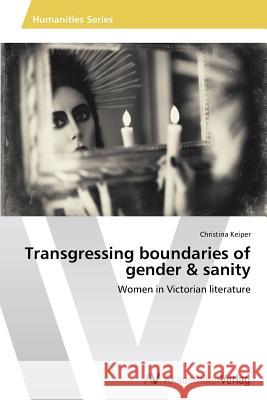Transgressing boundaries of gender & sanity » książka
Transgressing boundaries of gender & sanity
ISBN-13: 9783639644166 / Angielski / Miękka / 2015 / 248 str.
By reference to three archetypical Victorian novels, I investigate in how far upper-middle-class female protagonists were particularly likely to be defamed as (morally) mad in the literature of that time. Given the prominent stance of female characters in this thesis, it is worthwhile to address notions of 'gender' in theory before analysing the repercussions of this concept in the historical context of the Victorian period and its literature. In my analysis of the respective female characters, I am especially interested in two facts: firstly, the alleged madwoman is characteristically denounced by her male statutory representative - frequently to further his own ends. Secondly, the 'evidence' of a person's insanity and the reasons occasioning her denunciation and consequent confinement often appear far-fetched to the contemporary reader. With reference to the medico-socio-historical backdrop - against which these works of literature must be read - I demonstrate that the modern reader's alienation is rooted in the diverging understanding of 'madness' as either a symptom of moral degeneracy or a medical condition affecting a person's mind/psyche.
By reference to three archetypical Victorian novels, I investigate in how far upper-middle-class female protagonists were particularly likely to be defamed as (morally) mad in the literature of that time. Given the prominent stance of female characters in this thesis, it is worthwhile to address notions of gender in theory before analysing the repercussions of this concept in the historical context of the Victorian period and its literature. In my analysis of the respective female characters, I am especially interested in two facts: firstly, the alleged madwoman is characteristically denounced by her male statutory representative - frequently to further his own ends. Secondly, the evidence of a persons insanity and the reasons occasioning her denunciation and consequent confinement often appear far-fetched to the contemporary reader. With reference to the medico-socio-historical backdrop - against which these works of literature must be read - I demonstrate that the modern readers alienation is rooted in the diverging understanding of madness as either a symptom of moral degeneracy or a medical condition affecting a persons mind/psyche.











